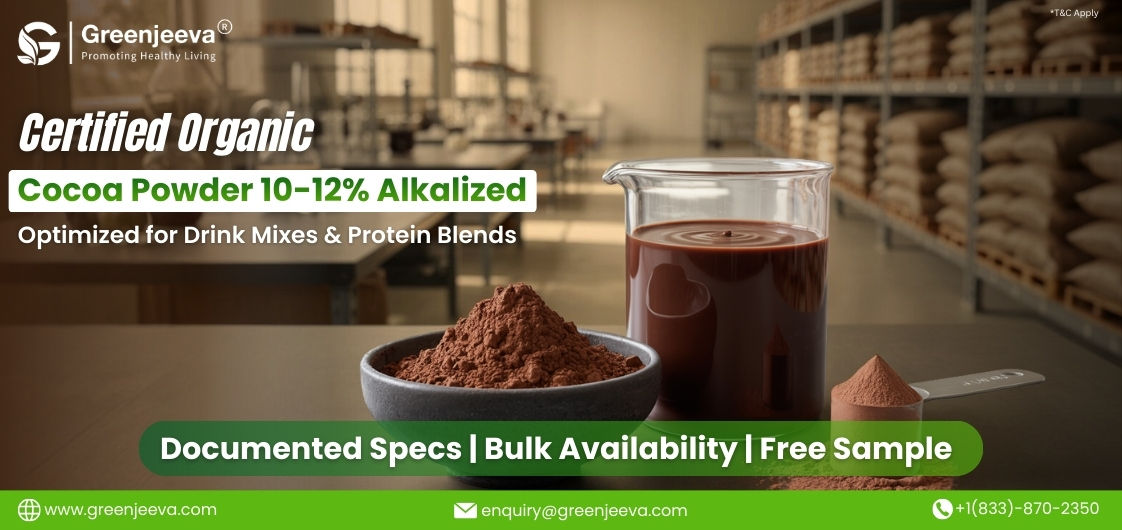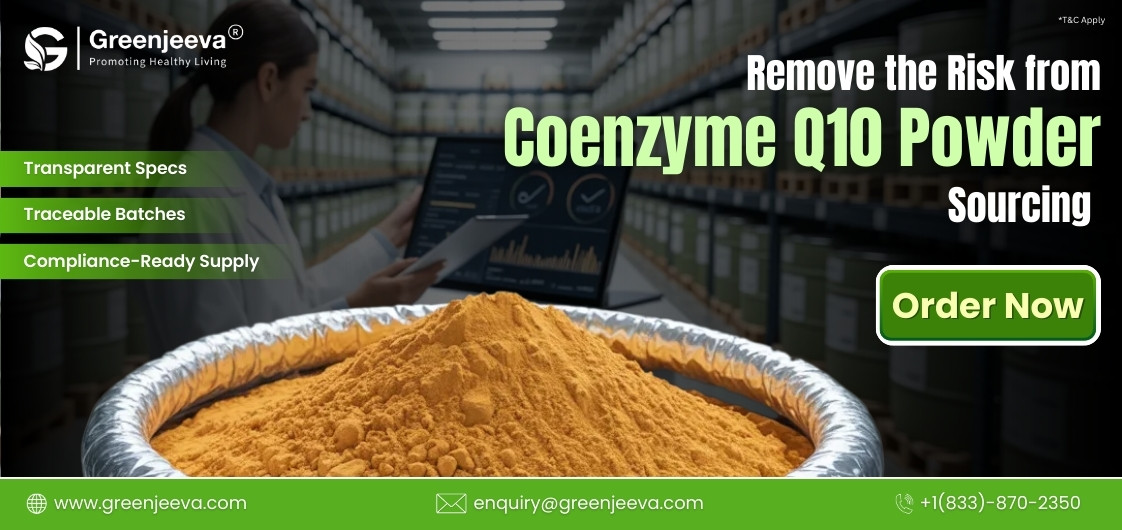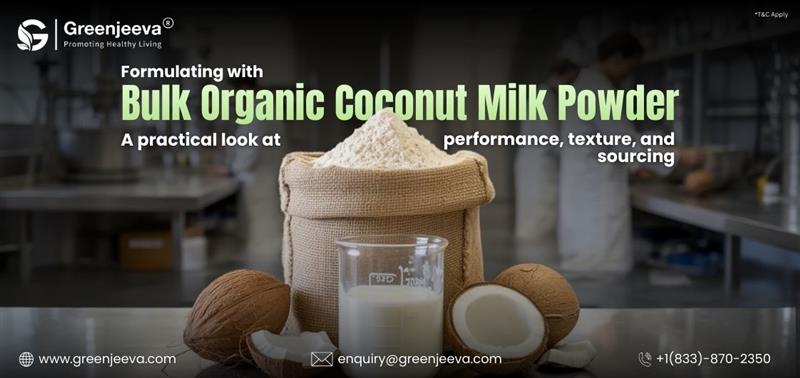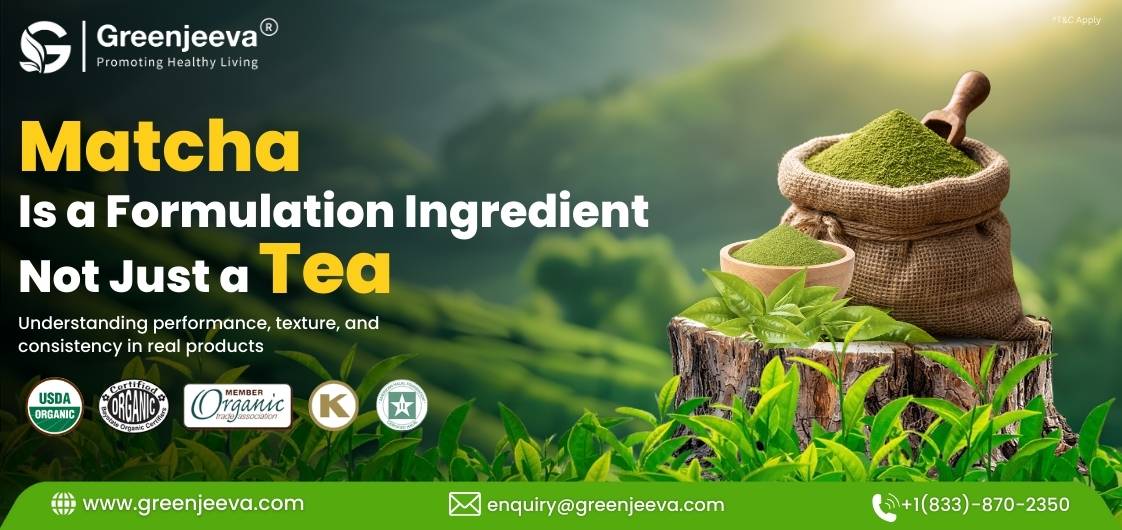Trends in Clean-Label and Mineral Supplementation: Why Potassium Bicarbonate Is Gaining Popularity

Have you ever wondered why consumers today scrutinize every ingredient more than ever before?
Imagine a market where transparency isn’t just desired it’s demanded. Where simple, recognizable ingredients are the currency of trust. This is the reality reshaping the nutraceutical industry right now. The clean-label movement has exploded, reshaping how products are formulated, marketed, and perceived. Businesses that once competed on claims and gimmicks are now challenged to deliver ingredients that consumers trust and understand.
Enter potassium bicarbonate a mineral ingredient quietly gaining momentum as a clean-label champion. Why? Because it perfectly fits the modern formula: simple, natural, and effective. For manufacturers, distributors, and ingredient suppliers, potassium bicarbonate represents more than just another mineral it’s a strategic asset aligning with growing market demands for transparency and mineral-rich nutrition without compromises.
If you’re in the B2B nutraceutical space, understanding why potassium bicarbonate is rapidly climbing the ranks of preferred minerals could be the difference between leading the market or trailing behind. This blog dives into the clean-label surge, market drivers, and practical reasons why potassium bicarbonate is becoming a go-to choice and what that means for your product line and business strategy.
Understanding Potassium Bicarbonate
At first glance, potassium bicarbonate might sound like just another chemical compound. But dig a little deeper, and it reveals itself as a highly versatile, clean-label mineral powerhouse. Chemically, it’s a naturally occurring salt made from potassium and bicarbonate ions, known for its excellent solubility and bioavailability. In simpler terms, it’s a mineral source that your body can absorb easily, making it an effective ingredient in mineral supplementation.
What sets potassium bicarbonate apart is its high potassium content, offering a concentrated, efficient way to add this essential mineral to supplements, beverages, and functional foods. Unlike some potassium sources that carry added sodium or less consumer-friendly profiles, potassium bicarbonate delivers potassium without the sodium baggage an increasingly important factor for health-conscious consumers and formulators alike.
Its uses stretch beyond supplements: it acts as a natural leavening agent in baking, a pH regulator in beverages, and even supports shelf stability. This versatility means suppliers and manufacturers can rely on potassium bicarbonate to fit clean-label standards while fulfilling multiple functional needs in a formulation.
For businesses, potassium bicarbonate is not just an ingredient; it’s a flexible solution that balances performance, consumer appeal, and formulation ease. Understanding this balance is crucial to capitalizing on the evolving clean-label and mineral supplementation trends.
Clean-Label Movement and Its Impact on Ingredient Choices
The clean-label wave is no fad it’s a fundamental shift reshaping the entire food and nutraceutical supply chain. For B2B stakeholders, this means a closer look at ingredient sourcing, transparency, and processing methods is not optional but essential.
Clean-label products promise consumers simplicity, honesty, and naturalness from farm to formulation. They expect labels free of chemical-sounding names, artificial additives, and complex processing. For manufacturers, this means choosing ingredients that are recognizable, minimally processed, and non-GMO.
Potassium bicarbonate ticks all these boxes. Sourced naturally and processed with minimal chemical intervention, it appeals to brands aiming to showcase purity and authenticity. Because it is free from allergens and artificial preservatives, it fits the profile of a mineral ingredient that supports clean-label certifications and consumer trust.
From a supply chain perspective, clean-label means more rigorous documentation and proof of sourcing integrity. Potassium bicarbonate suppliers often provide full traceability, certificates of analysis, and compliance with global standards features that make it easier for B2B buyers to meet retailer and regulatory requirements.
For businesses navigating this landscape, potassium bicarbonate represents a low-risk, high-value choice that meets consumer expectations without compromising on formulation flexibility or regulatory compliance.
Market Drivers Behind Potassium Bicarbonate Popularity
So, what’s fueling the surge in potassium bicarbonate’s demand? It boils down to shifting consumer priorities and evolving regulatory environments.
First, mineral supplementation has moved from niche to mainstream, with potassium taking a front seat. Consumers understand that potassium is vital but want it delivered cleanly without unnecessary additives or excess sodium. Potassium bicarbonate satisfies this desire by offering a high-potassium, low-sodium alternative, making it attractive in markets where sodium reduction is a priority.
Next, modern diets tend to be acidic, leading formulators to explore alkaline minerals to balance pH and support mineral intake without synthetic additives. Potassium bicarbonate’s natural buffering properties align perfectly with this trend, enabling functional beverages and supplements that meet consumer expectations for efficacy and naturalness.
Regulators in North America and Europe recognize potassium bicarbonate’s safety within defined limits, providing confidence for manufacturers to expand its use. Meanwhile, product developers are innovating with potassium bicarbonate in new formats think clean-label powders, effervescent tablets, and fortified beverages that appeal to health-conscious consumers seeking convenience without compromise.
For businesses, these drivers highlight an opportunity: potassium bicarbonate isn’t just a mineral ingredient; it’s a gateway to tapping into the clean-label and mineral supplementation markets’ fast growth.
Advantages of Potassium Bicarbonate Over Other Potassium Sources
When evaluating mineral ingredients, it’s essential to understand why potassium bicarbonate is standing out amid the competition.
Its bioavailability is one of the strongest points meaning the body can readily absorb the potassium it provides, ensuring formulations deliver on their promise. This compares favorably with some other potassium salts, which may have limited solubility or less favorable absorption profiles.
Taste matters, especially in beverages and powders. Potassium bicarbonate offers a neutral flavor profile, avoiding the bitter or salty notes typical of alternatives like potassium chloride. This trait not only improves product palatability but also reduces the need for flavor masking, simplifying formulation and lowering costs.
Another advantage is its low sodium content. With growing awareness around sodium intake, potassium bicarbonate’s absence of sodium makes it preferable for products targeting consumers managing their sodium levels or aiming for balanced mineral intake.
Finally, the ingredient’s versatility is a boon for product developers. Whether it’s a capsule, powder, effervescent tablet, or fortified beverage, potassium bicarbonate can fit seamlessly into various delivery formats without compromising stability or consumer appeal.
For B2B buyers, these advantages translate into fewer formulation headaches, better consumer acceptance, and stronger product differentiation.
Challenges and Considerations for Formulators
Of course, no ingredient is without challenges, and potassium bicarbonate is no exception.
One key concern is moisture sensitivity. Potassium bicarbonate tends to absorb moisture from the environment, which can lead to clumping or reduced shelf life. This means packaging innovations and strict storage protocols are critical to maintaining product quality factors that must be accounted for during production and logistics planning.
Taste, while generally neutral, can still require some masking in sensitive formulations. Creative use of natural flavors, sweeteners, or pH buffers often helps overcome this without compromising clean-label claims.
Regulatory considerations vary by region, and potassium supplementation limits exist to ensure safety. Careful dosage calculation and clear labeling are necessary to meet these standards and protect brand reputation.
Lastly, ingredient sourcing cannot be overlooked. Reliable suppliers offering full traceability, batch testing, and compliance certifications provide peace of mind and streamline procurement essential for B2B buyers looking to reduce supply chain risks.
Understanding and addressing these challenges proactively empowers formulators to harness potassium bicarbonate’s benefits fully.
Future Outlook and Opportunities
Looking ahead, potassium bicarbonate is positioned for sustained growth, propelled by expanding clean-label demands and innovative formulation trends.
Market analysts predict steady increases in its adoption across nutraceutical categories, driven by consumer demand for mineral-rich, transparent products. Advances in encapsulation and delivery technologies promise to reduce existing formulation hurdles, opening doors to new product types and markets.
The rising popularity of plant-based and organic nutraceuticals presents another avenue. Potassium bicarbonate’s natural sourcing and minimal processing make it a prime candidate for inclusion in certified organic and vegan-friendly products areas with significant growth potential.
Emerging markets in Asia and Europe are also adopting clean-label mineral supplementation more rapidly, suggesting global expansion opportunities for suppliers and manufacturers invested in potassium bicarbonate.
For B2B stakeholders, staying ahead means monitoring these trends closely and considering potassium bicarbonate not just as an ingredient, but as a strategic component of innovation and market differentiation.
Conclusion
In an industry increasingly defined by consumer demands for simplicity, transparency, and effectiveness, potassium bicarbonate emerges as a mineral ingredient that checks all the boxes. Its natural origin, clean-label compatibility, and functional advantages make it an essential consideration for nutraceutical brands and manufacturers aiming to stay competitive.
While formulation challenges exist, they are manageable with thoughtful planning and supplier partnerships. More importantly, potassium bicarbonate offers a versatile, consumer-friendly way to meet rising market expectations for mineral supplementation without compromise.
For B2B businesses, this means potassium bicarbonate is not just a mineral salt it’s a gateway to growth, trust, and innovation in the fast-evolving nutraceutical landscape. The question isn’t whether to include it, but how to best leverage it to deliver products that resonate in today’s discerning market.
**The Food and Drug Administration has not evaluated these statements. This product is not intended to diagnose, treat, cure, or prevent any disease. **






